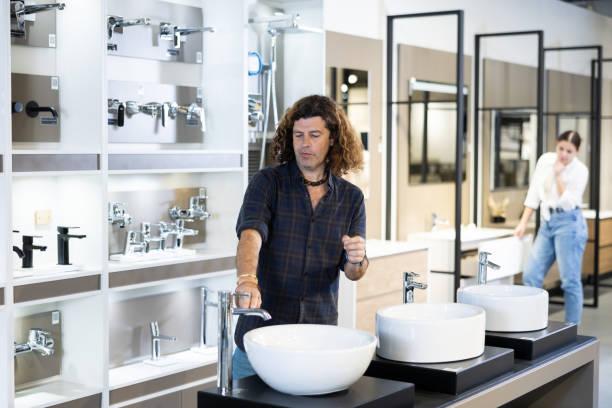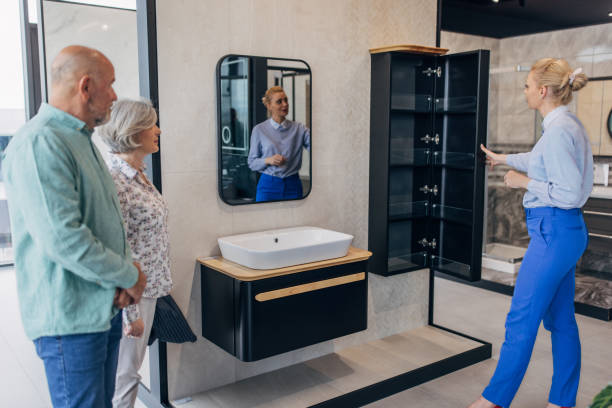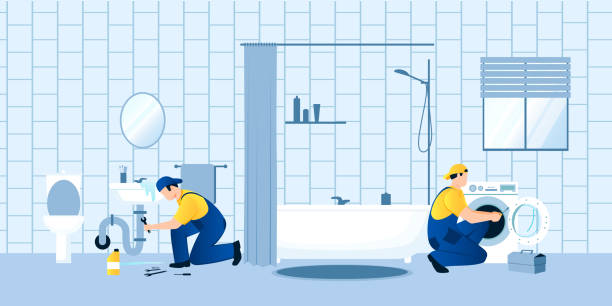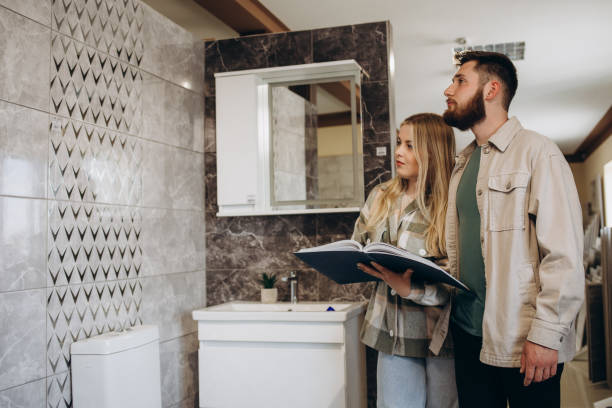When it comes to remodeling your bathroom, replacing the countertop can make a huge visual and functional impact. A new countertop doesn’t just enhance the style of your space—it also boosts your home’s value and improves daily use. However, with so many materials to choose from, how do you decide what’s best for your needs?
In this guide, we’ll walk you through the most popular bathroom countertop materials, key factors to consider before replacing, and tips to make a smart, lasting investment.

Why Replace Your Bathroom Countertop?
Before we dive into materials, it’s important to understand why homeowners across the U.S. opt to replace their bathroom countertops. Here are a few common reasons:
1. Outdated Aesthetics
Over time, styles change. That 90s laminate or tile counter may not reflect your current taste or the modern look you want.
2. Wear and Tear
Water damage, scratches, cracks, or mold can compromise both the appearance and hygiene of your bathroom.
3. Increased Home Value
A refreshed bathroom—especially with updated countertops—can significantly increase your resale value.
4. Better Functionality
Some materials are more durable, easier to clean, or more moisture-resistant—important features for a bathroom environment.
Key Factors to Consider Before Choosing a Countertop

1. Durability
Bathrooms are high-moisture areas, so your countertop needs to resist humidity, water splashes, and temperature changes.
2. Maintenance
How much upkeep are you willing to commit to? Some materials require regular sealing or special cleaners.
3. Budget
Costs can vary widely—from affordable laminate to high-end quartz or marble.
4. Style and Color
Your countertop should complement your bathroom’s overall style, whether it’s modern, rustic, minimalist, or luxurious.
5. Sink Compatibility
Make sure the material you choose works well with the type of sink you plan to install—undermount, vessel, or drop-in.
Top Bathroom Countertop Materials (Pros and Cons)
Let’s explore the most popular countertop materials for U.S. bathrooms, with pros and cons for each:

1. Quartz
Best for: Homeowners seeking durability and low maintenance with a luxurious look.
Pros:
- Non-porous, resists stains and bacteria
- No sealing required
- Available in a wide range of colors and patterns
Cons:
- Higher price point
- Not as heat-resistant as natural stone
2. Granite
Best for: Those wanting a natural stone feel with unique patterns.
Pros:
- Natural and elegant look
- Strong and heat-resistant
- Adds resale value
Cons:
- Requires regular sealing
- Can be costly
3. Marble
Best for: Luxury bathroom designs and classic elegance.
Pros:
- Beautiful, timeless appeal
- Unique veining patterns
- Great for low-traffic guest bathrooms
Cons:
- Prone to staining and etching
- Requires regular sealing and maintenance
- Expensive
4. Laminate
Best for: Budget-conscious remodels or rental properties.
Pros:
- Very affordable
- Easy to install
- Wide variety of designs
Cons:
- Can peel or chip over time
- Not heat or scratch-resistant
- Looks less high-end
5. Solid Surface (e.g., Corian)
Best for: Seamless, modern bathrooms with integrated sinks.
Pros:
- Seamless design with no visible joints
- Easy to clean
- Can be repaired if scratched
Cons:
- Less heat-resistant
- Prone to scratching
- Mid-range in price
6. Concrete
Best for: Industrial or modern farmhouse designs.
Pros:
- Customizable in color, texture, and shape
- Strong and durable
- Unique aesthetic
Cons:
- Must be sealed regularly
- Can crack over time
- Heavy—may need cabinet reinforcement
7. Recycled Glass
Best for: Eco-conscious homeowners who want a bold statement.
Pros:
- Eco-friendly and sustainable
- Eye-catching, colorful patterns
- Durable and non-porous
Cons:
- Can be pricey
- Limited availability
- May chip or crack under heavy impact
Installation Tips: What to Expect

1. Hire a Pro (for Most Materials)
While DIY is possible for laminate, more complex materials like granite or quartz require professional installation.
2. Measure Accurately
Precise measurements are essential for a clean fit, especially around sinks and corners.
3. Prepare for Disruption
Replacing a countertop can take a day or more, and you may be without a sink during that time.
Budget Breakdown: What Should You Expect to Pay?
| Material | Average Cost per Sq. Ft. (Installed) |
| Laminate | $20 – $50 |
| Quartz | $60 – $100 |
| Granite | $50 – $120 |
| Marble | $75 – $150 |
| Solid Surface | $40 – $80 |
| Concrete | $70 – $135 |
| Recycled Glass | $80 – $140 |
Note: Prices vary based on location, edge style, sink cutouts, and finish.
Which Material is Best for You?
Here’s a quick cheat sheet based on your needs:

- Low Budget: Laminate or tile
- Mid-Range + Easy Maintenance: Quartz or solid surface
- Luxury Appeal: Marble or granite
- Eco-Friendly Option: Recycled glass
- Unique Design: Concrete or custom solid surface
Final Thoughts
Choosing the right bathroom countertop isn’t just about aesthetics—it’s about finding the right balance between form, function, and finances. Whether you’re going all-in on a luxury remodel or making budget-friendly upgrades, there’s a material out there that suits your lifestyle and design vision.
Before committing, visit local showrooms, feel the materials in person, and get estimates from multiple installers. With the right choice, your new countertop can transform your bathroom into a space that’s as stylish as it is functional.